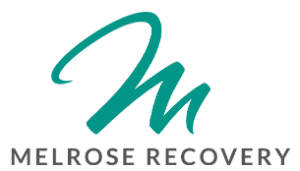Adderall Treatment And Rehab
Melrose Recovery, a safe, secure Adderall treatment and rehab recovery center, in the hills of Los Angeles
Adderall Treatment And Rehab – At Melrose Recovery, we believe everyone deserves a second chance. Our foundation is built on lived experience—where struggles with substance use no longer define us, but instead fuel our mission to help others reclaim their lives.
We offer transformative recovery rooted in acceptance, connection, and support. Our purpose is to guide individuals facing alcohol and drug addiction toward lasting freedom, empowering them to break the cycle and build a brighter future.
Since 2015, Melrose Recovery is dedicated to changing lives. Our comprehensive Adderall addiction treatment approach encompasses detoxification, residential care, and aftercare services, all tailored to meet each individual’s unique needs on their recovery journey.
Led by a compassionate team of addiction professionals and counselors, we offer a range of therapy programs designed to support and guide individuals suffering Adderall withdrawal toward lasting sobriety. At Melrose Recovery, we believe in the power of personalized care and diverse treatment options to pave the way for a brighter future.

Why Choose Melrose Recovery for Adderall Abuse Treatment in Los Angeles?
At Melrose Recovery Detox and Inpatient Treatment Center, we provide a safe and supportive environment for individuals seeking recovery from substance abuse and co-occurring mental health disorders. Located in the heart of Los Angeles, our rehab center offers comprehensive care through personalized individual and group therapy, led by a dedicated clinical team. Whether you’re struggling with addiction, mental health challenges, or both, our medically trained staff is here to guide you toward lasting healing and recovery.
what is Adderall – Adderall Treatment And Rehab
Adderall is a prescription medication that contains two stimulant drugs: amphetamine and dextroamphetamine. These substances affect chemicals in the brain and nerves that contribute to hyperactivity and impulse control.
Primary Uses:
-
ADHD (Attention-Deficit/Hyperactivity Disorder):
-
Helps improve attention, focus, and impulse control.
-
-
Narcolepsy:
-
Used to help people stay awake.
-
How It Works:
Adderall increases the levels of certain neurotransmitters, primarily dopamine and norepinephrine, in the brain. This stimulates the central nervous system, helping with concentration and alertness.
Forms Available:
-
Adderall IR (Immediate Release):
Usually taken 2–3 times a day. -
Adderall XR (Extended Release):
Taken once daily, lasts longer.
Treating An Adderall Addiction – Adderall Treatment And Rehab
Overcoming Adderall Addiction: A Step-by-Step Guide to Recovery
Recovering from Adderall addiction involves learning to live and function without relying on the drug. Adderall, a prescription stimulant, can be highly addictive—especially when misused for its energizing and focus-enhancing effects.
The First Step: Managing Withdrawal – Adderall Treatment And Rehab
The journey to recovery begins with safely managing Adderall withdrawal and identifying potential relapse triggers. Common symptoms during this phase include extreme fatigue, low mood, and difficulty focusing—challenges that often require professional support to navigate successfully.
A medically supervised detox at a qualified rehab center ensures withdrawal is closely monitored. For individuals with a heavy dependence on Adderall, doctors may implement a tapering strategy to gradually reduce the dosage and lessen the severity of symptoms such as depression and exhaustion.
The Role of Therapy and Support – Adderall Treatment And Rehab
Detox is just the beginning. Long-term recovery depends on ongoing therapy and emotional support. A key part of treatment is uncovering what led to Adderall misuse—whether it was academic pressure, career demands, or unresolved emotional issues. Counseling helps people address these underlying causes and build healthier coping mechanisms.
Inpatient Rehab for Adderall Addiction – Adderall Treatment And Rehab
Inpatient rehab is often recommended for those with moderate to severe addiction, or for individuals dealing with co-occurring substance use disorders. Treatment lengths vary but typically range from 28 to 90 days, depending on the person’s needs.
In these programs, clients follow a structured daily schedule that may include:
-
Individual therapy
-
Group counseling and process groups
-
Educational sessions about addiction
-
Support meetings (e.g., 12-step programs)
-
Physical activity and wellness routines
-
Family therapy and visitation
The structured environment helps remove external triggers and distractions, allowing individuals to focus solely on recovery. Medical professionals are often available on-site to assist with detox and manage any health complications that arise.
Writer Ruthie Friedlander, a former Adderall user, once shared her difficult but ultimately successful experience tapering off the drug. Her story highlights how treatment and support can make recovery possible, even when the process is tough.
Treatment Approaches Used in Rehab – Adderall Treatment And Rehab
Rehabilitation programs often incorporate a variety of therapeutic approaches to address both addiction and any co-occurring mental health conditions:
-
12-Step Programs: Offer peer support and a framework for maintaining sobriety.
-
Cognitive Behavioral Therapy (CBT): Helps individuals recognize and change patterns that lead to substance use.
-
Dialectical Behavior Therapy (DBT): Teaches skills for managing emotions and improving relationships.
-
Holistic Therapies: May include yoga, meditation, art therapy, or nutritional counseling.
One-on-one counseling is a cornerstone of many programs, providing personalized attention to address the root issues fueling the addiction.
Some people may have started using Adderall to cope with deeper issues like anxiety, depression, or eating disorders. Effective rehab programs treat these conditions alongside the addiction to support long-term recovery. When necessary, psychiatrists may prescribe medications to manage mental health symptoms.
Life After Rehab: Ongoing Treatment and Relapse Prevention – Adderall Treatment And Rehab
Recovery doesn’t end with rehab. Continued care is essential to prevent relapse and build a fulfilling life in sobriety. Many people benefit from ongoing therapy, peer support groups like Narcotics Anonymous, or a combination of both.
CBT is especially effective for preventing relapse. It teaches individuals how to:
-
Identify and manage triggers
-
Develop coping strategies
-
Replace negative thought patterns with healthier ones
One study found that participants who received CBT were significantly more likely to remain abstinent from amphetamines six months after treatment compared to those who didn’t.
Tips for Staying Sober – Adderall Treatment And Rehab
Here are some habits that can support long-term recovery from Adderall addiction:
-
Maintain a Healthy Lifestyle: Regular exercise, a balanced diet, and consistent sleep improve focus and mood.
-
Recognize Your Triggers: Whether it’s stress, fatigue, or a high-pressure situation, knowing what triggers cravings can help you prepare and respond effectively.
-
Take Breaks When Needed: If you feel the urge to use, stepping away from a stressful task for 15–30 minutes can help reduce the craving.
Get Help Today
As awareness of Adderall addiction grows, more people are seeking treatment. In fact, treatment admissions for stimulant addiction increased by 58% between 2002 and 2013.
If you or someone you know is struggling with Adderall use, Melrose Recovery of Los Angeles is available. Recovery is possible—with the right support, you can take back control and start a healthier chapter.
Frequently Asked Questions About Adderall – Adderall Treatment And Rehab
Cognitive & Academic Performance – Adderall Treatment And Rehab
Does Adderall improve concentration?
Yes, for people with ADHD, Adderall can significantly enhance focus and attention.
Can Adderall help with studying or academic performance?
In individuals with ADHD, it can. In non-ADHD users, it may offer short-term focus but has diminishing returns and legal/ethical concerns.
Does Adderall increase intelligence or learning ability?
No, it improves attention and wakefulness, not IQ or actual learning capacity.
Is there a downside to using Adderall as a study aid without ADHD?
Yes, risks include dependence, insomnia, anxiety, and legal consequences.
Does Adderall help with memory?
It may help with working memory in ADHD patients, but not significantly in others.
Medical & Therapeutic Use – Adderall Treatment And Rehab
What is Adderall primarily prescribed for?
ADHD and narcolepsy.
Is Adderall effective for all ADHD patients?
Not always—some patients may respond better to other medications or behavioral therapies.
Can Adderall reduce hyperactivity?
Yes, it helps calm impulsivity and hyperactivity in people with ADHD.
Does Adderall improve executive function in ADHD?
Yes, it often improves planning, organization, and task completion.
Can Adderall treat depression?
It is not approved for depression, but may be prescribed off-label in specific treatment-resistant cases.
Risks & Side Effects – Adderall Treatment And Rehab
What are common side effects of Adderall?
Insomnia, dry mouth, anxiety, appetite loss, and increased heart rate.
Is Adderall addictive?
Yes, it has a high potential for abuse and dependence, especially in non-prescribed users.
Can Adderall cause heart problems?
Yes, especially in people with underlying heart conditions.
Does Adderall increase anxiety?
It can, particularly in higher doses or in people prone to anxiety.
Can Adderall lead to mood swings or aggression?
In some cases, yes, especially with misuse or long-term use.
Long-Term Effects – Adderall Treatment And Rehab
Are there long-term health risks with Adderall?
Potential risks include cardiovascular issues, mental health changes, and dependence.
Does tolerance to Adderall develop over time?
Yes, requiring higher doses for the same effect, increasing risk of side effects.
Can Adderall stunt growth in children?
There is some evidence it may slightly affect growth rate, though often temporary.
Is long-term Adderall use safe under medical supervision?
It can be, with careful monitoring of cardiovascular and mental health.
Can long-term use of Adderall affect sleep patterns?
Yes, it often disrupts normal sleep, especially if taken later in the day.
Ethical, Legal & Lifestyle Considerations – Adderall Treatment And Rehab
Is it legal to use Adderall without a prescription?
No, it is a controlled substance and illegal to use without a prescription.
Is it ethical to use Adderall as a performance enhancer?
This is widely debated; many consider it unethical in competitive or academic settings.
Can Adderall affect personality? – Adderall Treatment And Rehab
It may alter mood and social behavior, especially at high doses.
Is it safe to mix Adderall with alcohol? – Adderall Treatment And Rehab
No, this can mask intoxication and increase the risk of heart problems and overdose.
Can Adderall interfere with other medications? – Adderall Treatment And Rehab
Yes, especially antidepressants, blood pressure meds, and MAO inhibitors.
Don’t Wait to Look for a Drug Addiction Treatment Program
Get In Touch
info@melroserecovery.com
501 North Mariposa Ave, Los Angeles, CA 90004








